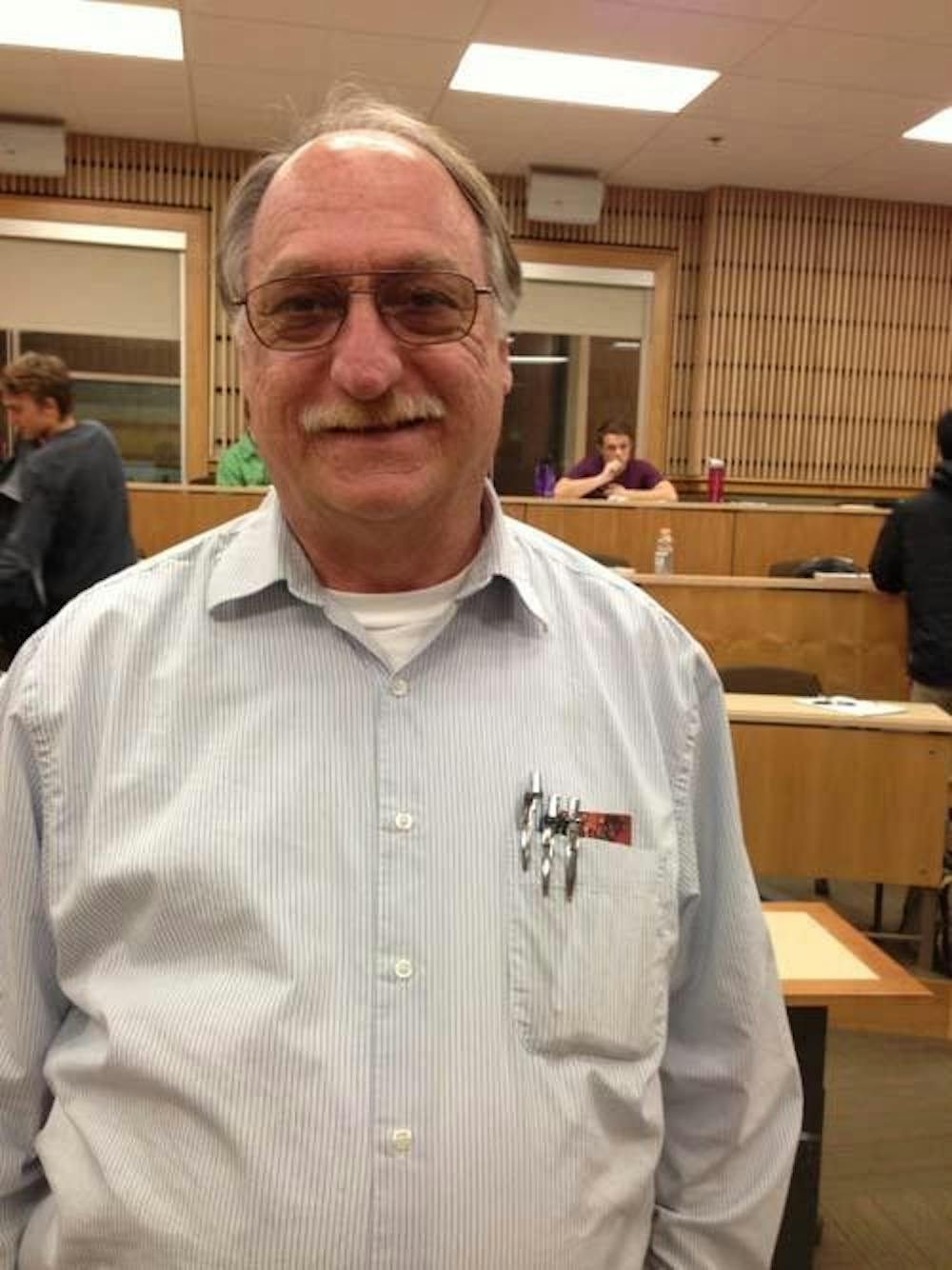Proposal lets professors decide whether or not to include world religions
Matthew Baasten Associate Provost (The Beacon)
By Kate Stringer, Staff Writer stringer14@up.edu
Details of the new theology core curriculum were finally made public at the ASUP Senate meeting Monday night. The controversial plan to narrow the focus of Theology 101 from a study of world religions to Christianity came about after an External Core Review recommended focusing on quality over quantity.
"If you took an anatomy course, there's no way you could cover every body system. They take four or five systems and teach you how you study them, so besides giving you the content, they also teach you the method," said Associate Provost Matthew Baasten. "We're hoping that by teaching you the method you'll be able to look at any religion."
After listening to Baasten and College of Arts and Sciences Dean Michael Andrews' rationale for the changes, ASUP decided to gather feedback from the student body before voting on Resolution 12-11, which opposes the new curriculum for introductory Theology, now to be called Theology 105.
"The senate decided to hold off on this and either do a major rewrite or reconsider the resolution as a whole," ASUP President Brock Vasconcellos said. "They'll take it back to the drawing board and reassess."
In December senators drafted and unanimously passed Resolution 12-11 after hearing students' dissatisfaction over the proposed curriculum changes. Vasconcellos vetoed the resolution and requested that senators wait to hear the theology department's proposal before presenting a resolution to the Academic Senate in February.
New course goals added
Baasten and Andrews explained that revisions to the theology curriculum came after an External Core Review recommended the theology department better incorporate Core Questions such as "who or what is God?" and "who am I?" into Course Goals.
The new introduction to Theology course will give students the tools and time to answer these questions by focusing on one religion, Christianity, according to Baasten.
"It will give them the tools to use a theological lens," Baasten said. "It will make them better prepared for theological perspectives courses because they'll have a better idea of what a theological lens does."
While world religions will no longer be the focus of entry level theology, professors can decide to use other religions to add to the discussion of theology and their relationship to Christianity, according to Baasten.
Resolution rewrite
Senator Adam Harnden, one of the writers of Resolution 12-11, wants more evidence of the theology department's plan to incorporate world religions.
"They really did not give concrete evidence about what they're going to do about the world religions aspect of it, " Harnden said. "What it sounded like to me was that [including world religions] is up to the discretion of the professor."
Instead, new upper division theology courses will offer a study of different religions. The courses will vary depending on the professor's expertise, but possible courses include a study of ethical issues from the viewpoints of multiple religions, and a study of how different religions view their sacred texts.
'More conversations'
While students in the College of Arts and Sciences are required to take a third theology course, other colleges in the University such as nursing and engineering do not allow time for an upper division world religions course.
Baasten says that with these changes, schools will have to reevaluate what they want their students to receive from their education.
"We're really in the early stages because more conversations have to be done," Baasten said. "I want to emphasize that learning doesn't just include inside the classroom - you can do it outside the classroom with talks, visiting other places. I'm hoping that if we supply you all with the tools you can go and study another religion and you don't need a teacher the same way."
Harnden says that the writers of the resolution plan to go back to the drawing board and create a resolution that demands a concrete plan to put some aspect of world religions into the course.
"We're completely re-working [the resolution]," Harnden said. "I personally do not see them changing their minds without the revisions. With the revisions they may be more willing to work with us."
The changes to the curriculum will go into effect this fall.
Andrews thinks students will be able to engage in a more comprehensive conversation of all religions after getting the tools to study one.
"The question doesn't have to be 'theology or world religions,' but as we study theology we get the keys, the instruments, the methods to engage in the dialogue of world religions," Andrews said. "Try it first."








